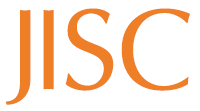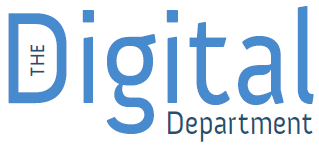Social Media guidelines
By Stefanie D Anyadi, on 14 March 2012
Interesting to see the University of Aberystwyth Social Media guidelines for staff at http://www.aber.ac.uk/en/social-media/onlinesafety/, and to compare them with UCL guidelines at http://www.ucl.ac.uk/social-media/guidelines. Two quite different approaches!
Working with the AUA
By Stefanie D Anyadi, on 25 February 2012
Joined the AUA CPD Implementation Project Networking Event on Thursday, a follow-up to an earlier meeti ng which Clive attended (see his post of 20 October). It was great to meet colleagues from universities across the UK and find out about their projects, including some who are working on building the AUA professional behaviours into staff development strategies, and learn more about the challenges they are facing and possible solutions. Like us, some have encountered difficulties applying the AUA framework directly to the staff roles they are working with, and one solution was to slightly adapt the framework to local needs. Most of those who attended will also join the AUA conference in Manchester at the beginning of April, and it will be great to find out then how everyone is getting on with their projects.
ng which Clive attended (see his post of 20 October). It was great to meet colleagues from universities across the UK and find out about their projects, including some who are working on building the AUA professional behaviours into staff development strategies, and learn more about the challenges they are facing and possible solutions. Like us, some have encountered difficulties applying the AUA framework directly to the staff roles they are working with, and one solution was to slightly adapt the framework to local needs. Most of those who attended will also join the AUA conference in Manchester at the beginning of April, and it will be great to find out then how everyone is getting on with their projects.
Digital tools – listmania, how to guides and more
By Stefanie D Anyadi, on 23 February 2012
Working on this project, I’m coming across a lot of tools, lists and how-to-guides, and thought it would be useful to start collecting these. I hope you find them useful, too, and please do reply with additional suggestions:
- UCL resources at http://www.ucl.ac.uk/isd/, incl e-learning guides at http://www.ucl.ac.uk/isd/staff/e-learning
- Blog posts from the University of Readings “Digitally Ready” project at http://blogs.reading.ac.uk/digitallyready, including posts on useful apps, social media, managing the outlook diary
- Centre for Learning and Performance Technologies with a list of top tools for teaching and learning, incl relevant admin tools at http://c4lpt.co.uk/top-100-tools-for-learning-2011/
- Web2Admin shared bookmarks on diigo at http://groups.diigo.com/group/web2_admin and the associate blog at http://web2admin.blogspot.com/
NUS Charter on Academic Support stresses importance of admin support
By Stefanie D Anyadi, on 19 February 2012
The recently published NUS Charter on Academic Support is a tool for student representatives and student unions, which sets goals for good practice in academic support. One of the aims of the Charter is of particular relevance to the Digital Department Project:
Support, and recognition, should be available to those who provide support to students
There are many people who provide support to students, from central student services, academics and library staff to students themselves. Institutions should give these people time and resources to develop their skills as a mentor, and should give them the space to discuss the challenges they face. This will not only ensure that they feel that their contributions make a difference, but also help institutions to develop their support practices by sharing best practice across the institution and highlighting any development needs.
This fits in very well with The Digital Department project approach:
At UCL, the partnership between academic and non-academic staff is recognised as being essential in order to achieve the highest standards in UCL’s academic mission. Moreover “the use of online technologies is an essential component of the way in which students access and engage with the curriculum at UCL” (Institutional Learning and Teaching Strategy 2010-2015). It is becoming clear that for this vision of the modern university to be realised the digital literacies of support staff must be developed as a strategic asset.
The ambition of The Digital Department is to professionalise the digital literacy of teaching administrators (TAs) in order to enhance the teaching and learning environment. This is not simply the development of a specific group of staff; we see the digital literacies of students, academic colleagues and TAs as being interconnected via the digital learning environment.
Further information on the NUS Charter on Academic Support is available at http://www.nusconnect.org.uk/campaigns/highereducation/learning-and-teaching-hub/academicsupport/
JISC Developing Digital Literacies programme
By Stefanie D Anyadi, on 19 February 2012
The Digital Departments is one of a number of digital literacy projects funded by JISC. You can find an overview of the programme at http://www.jisc.ac.uk/developingdigitalliteracies and updates via the various project blogs.
The Guardian Digital Literacy Campaign
By Clive Young, on 10 January 2012
 The Guardian newspaper has just launched a campaign to improve IT and computer science teaching in schools and universities. They are running a series of live Q&As this week with teachers, lecturers and experts from technology companies such as Google and Microsoft…and want input from as many teachers, lecturers, pupils, parents and developers as possible. Throughout the week, in the paper and online, the Guardian “will be looking at how employers feel about the scarcity of digital skills among the UK workforce, going to schools to talk to them about how they teach IT and computer science, hearing from ministers such as Michael Gove and Ed Vaizey and visiting the Bett education technology show in London“. An interesting initiative to follow, supported by Google.
The Guardian newspaper has just launched a campaign to improve IT and computer science teaching in schools and universities. They are running a series of live Q&As this week with teachers, lecturers and experts from technology companies such as Google and Microsoft…and want input from as many teachers, lecturers, pupils, parents and developers as possible. Throughout the week, in the paper and online, the Guardian “will be looking at how employers feel about the scarcity of digital skills among the UK workforce, going to schools to talk to them about how they teach IT and computer science, hearing from ministers such as Michael Gove and Ed Vaizey and visiting the Bett education technology show in London“. An interesting initiative to follow, supported by Google.
How to Develop Digital Literacies in Yourself and Others
By Clive Young, on 9 January 2012
Doug Belshaw, a researcher/analyst at JISC infoNet has devloped an excellent Slideshare on digital literacies. He asks;
If literacy is just ‘reading and writing’ then why has so much ink been spilled over such a simple concept? Is there just one ‘literacy’ to rule them all? Or are there multiple literacies? Is what we do online a ‘literacy’?
Doug believes there are eight essential elements to digital literacies and that definitions of digital literacies should be co-created to have power. In this presentation he points to useful resources (from JISC and elsewhere), asks some questions as conversation starters and provides some practical examples of how you can develop digital literacy skills in yourself and others.
Gain CMALT certification through TDD
By Clive Young, on 13 December 2011
 The Digital Department is planning to support a group of our teaching administrators through the Certified Membership, Association for Learning Technology (CMALT). This is a well-recognised portfolio-based professional accreditation. The focus is on ‘learning technologies’ but the majority of UCL teaching administrators currently use applications like Moodle, Turnitin, Lecturecast, Opinio, My Portfolio, the UCL Wiki and so on, at least to some extent. All use email to contact students, and many are experimenting with text andFacebook , even blogs and Twitter. Some also use other Web 2.0 technologies to support the student learning experience. In other words much of our practice may be applicable to CMALT.
The Digital Department is planning to support a group of our teaching administrators through the Certified Membership, Association for Learning Technology (CMALT). This is a well-recognised portfolio-based professional accreditation. The focus is on ‘learning technologies’ but the majority of UCL teaching administrators currently use applications like Moodle, Turnitin, Lecturecast, Opinio, My Portfolio, the UCL Wiki and so on, at least to some extent. All use email to contact students, and many are experimenting with text andFacebook , even blogs and Twitter. Some also use other Web 2.0 technologies to support the student learning experience. In other words much of our practice may be applicable to CMALT.
CMALT is a chance to learn about, share and implement good practice in the wide range of technologies that support our students’ teaching and learning. For further information we have circulated a short leaflet.
Image source : http://www.flickr.com/photos/lcfshortcourses/6424419439/
Helen Beetham on digital literacy and the role of the university
By Clive Young, on 2 December 2011
Helen Beetham, well-known through her work for JISC, HEFCE and her model for learning activity design, is a leading light in the field of e-learning policy and practice. In this lecture, she explores how digital technologies are changing the needs and expectations of students, how universities can respond, and what opportunities the new digital landscape presents for universities to reposition themselves as institutions of public knowledge. A presentation at the University of Greenwich earlier this year.
Helen Beetham: Digital Literacy and the Role of the University #LTAlectures from Educational Development Unit on Vimeo.
TDD meets Heads of e-Learning
By Clive Young, on 29 November 2011
 At the Driving Internal Change: internal approaches to digital literacies seminar at the University of Bath last week, organised by the Heads of e-Learning Forum. Several excellent presentations from projects the JISC Digital Literacies programme, including of course The Digital Department. Spotted this unusual photograph of me doing my presentation on the blog of Digital Literacies as a Postgraduate Attribute, another DigiLit project.
At the Driving Internal Change: internal approaches to digital literacies seminar at the University of Bath last week, organised by the Heads of e-Learning Forum. Several excellent presentations from projects the JISC Digital Literacies programme, including of course The Digital Department. Spotted this unusual photograph of me doing my presentation on the blog of Digital Literacies as a Postgraduate Attribute, another DigiLit project.
Martin Oliver took the photo and explains: “In case you’re wondering, the odd “over-the-shoulder” gazes are because there are screens on two sides of the room, with an elliptical table in the middle. That in itself is interesting; it makes doing a talk really hard, because if you stand up so you’re visible, you’re always behind someone”. Indeed an odd layout but a very interesting event.
I was reminded though how innovative and maybe challenging The Digital Department really is. Some colleagues were certainly sceptical of the advisability or even capacity of their administrators to take on more proactive roles but others were much more supportive and had noted similar changes in their institutions.
 Close
Close


 JISC
JISC 

